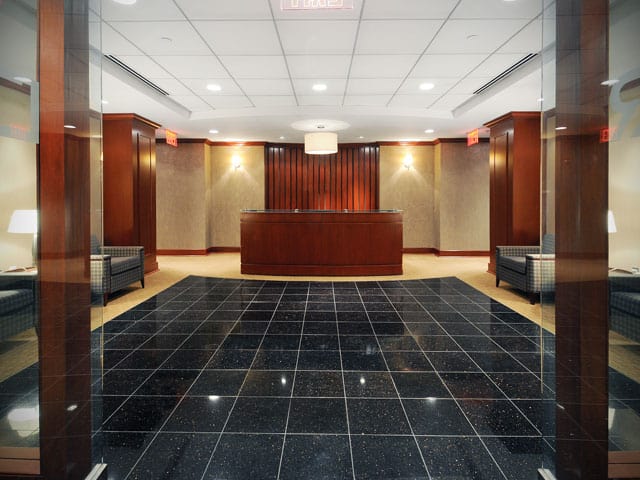Sometimes we miss appointments. Follow the 3 easy tips to minimize and prevent any damage done in your shared office space.
It’s a Friday morning at your shared office space. You have a 10:00 AM appointment and planned to be there beforehand but there are delays on the A train as an “investigation” ensued at Jay Street-MetroTech leaving you stuck for quite some time.
Your client arrives and you are nowhere to be found. The receptionist tries your office line without success, unaware of your situation.

When you arrive twenty minutes after the client leaves, the receptionist gives a detailed account. Frustrated and dismayed, you only wish the investigation at Jay Street-MetroTech had not ensued and even more so, you are disappointed at the fact that there was nothing you could do about it.
Things happen that are out of our control, especially in a city like New York. It’s easy to get stuck in traffic (subway or automobile-related), or you can get stuck in court or even booked an appointment for the wrong date.
No matter what reason is given for missing that appointment, it will almost always register to the client as you not caring about them or their time. Depending on the size of the case, the financial consequences can be very impactful just because you missed that appointment.
Diffusing the damage proactively is necessary to recover from this type of situation and there are three ways to use your shared office space to minimize the damage if your are late or make an error in your calendar.
 1. Make sure the receptionists have all your contact numbers.
1. Make sure the receptionists have all your contact numbers.
The receptionist is a shared office space is your best friend as they are the first point of contact when walking into the office. This is true because they are a resource of information and stay on top of what needs to be done; they are a helpful tool in diffusing any mess.
Lawyer need to keep open lines of communication with reception to ensure alternative plans are established in case something unexpected occurs. It will further minimize any damage done if the receptionist has a set plan to handle it.
Contact numbers should be kept up to date with the receptionist. This is an obvious step that is often missed unfortunately and it is the job of the lawyer to ensure all information is kept relevant.
Our receptionists at Law Firm Suites contact every attorney that has a client walk through our doors. Even if there is no pick up when the office line and cell phone is contacted, an e-mail is sent to the attorney. Texts are also permitted if the attorney is fine with the receptionist using this method of communication.
2. Get a colleague to cover for you.
Other colleagues in your shared office space are also a vital resource, especially for the solo attorney running his or her own firm. You can arrange to have another office mate to cover for you should something occur like you are on vacation and a client unexpectedly shows or the elements work against you on a particular day.

If you choose to go with this method, be sure to let the receptionist know who is there to cover so they know who to contact directly and not play the waiting game.
3. Create a Time-Limit

When the receptionist knows what to say to the client, they can communicate effectively, thus minimizing any damage should an appointment be missed unintentionally. This means you maintain control of the situation even though your physical presence is missing.
Running a solo practice is an all-consuming endeavor. You are responsible for firm administration, marketing and client management. Sometimes an appointment may slip through the cracks.
Creating a contingency plan for every possible scenario helps you in saving face and potentially losing out on fiscal incentives caused by simple administrative errors or event that are out of our control.



